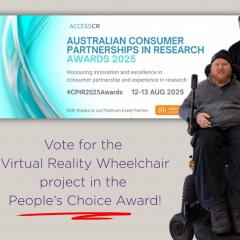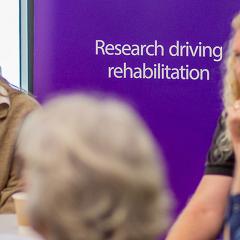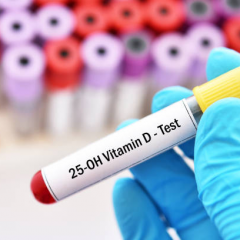Project title
Innovative mHealth platform both highly valued by people with chronic pain and assists individuals to make constructive behavioural changes
What is the research about?
Most people experience pain throughout their life. For some people pain is unrelenting and won’t go away. Chronic pain is both difficult to manage and hard to treat. People with chronic pain often struggle to find the right level of activity as doing both too little and too much can significantly worsen symptoms. We teamed up with CSIRO and Metro North Hospital and Health Service to develop an innovative mobile health platform called Pain ROADMAP to help people find the right level of activity to both better manage their pain and be able to do more of the things that were important to them.
What did the researchers do?
To evaluate our mhealth platform, we conducted a pilot implementation study with 20 adults who had chronic pain. The twenty adults undertook 1-week Pain ROADMAP monitoring intervals in their own homes which involved wearing an ActiGraph activity monitor (i.e., a sophisticated Fitbit) and entering pain scores, opioid use and activities carried out throughout the day into a custom-made phone app. The Pain ROADMAP online portal integrated and analysed the data to detect activities that caused a severe pain exacerbation (i.e., pain flare ups) and provided information about progress overtime through summary statistics pertaining the data collected. As part of a 15-week treatment protocol, participants received feedback from three dispersed Pain ROADMAP monitoring periods. Treatment focused on adapting pain-provoking activities, gradually increasing goal-related activity and optimising routine.
What did the researchers find?
- For the most part, participants were able tolerate and adhere to the monitoring procedures.
- All participants who filled in the evaluation questionnaire at the end of the study indicating that Pain ROADMAP feedback was valuable and that it was worth undergoing the monitoring to receive the feedback that was provided by the clinician.
- Participants who completed the 15-week treatment protocol, had a significant reduction in activity related pain flare ups and experienced a stabilisation in their pain levels.
- Clinically meaningful decreases in opioid use, depression, activity avoidance and increases in productivity were also observed.
- A few participants commented that the ActiGraph activity monitor was bulky and that the ability to wear the monitor on other parts of the body would improve Pain ROADMAP monitoring.
- Participants recommended a number of minor adaptions to the app such as customisable notification tones and the ability to edit data once it has been entered.
- Two participants who were under the age of 25 dropped out of the study early. Hence, strategies may be needed to ensure mHealth assisted treatments are engaging for young people such as the use of gamification to increase motivation.
What you need to know:
This is the first study to demonstrate how mHealth innovations that utilise ecological momentary assessment can be successfully integrated with wearable technologies to provide a tailored activity modulation intervention that is both highly valued by people with chronic pain and assists individuals to make constructive behavioural changes. Overall, the results of the pilot implementation provide evidence for the clinical utility of a mHealth assisted activity modulation interventions within the pain field and offers further directions for both research and technology development.
How can you use this research?
Based on the results of this study the following may improve the uptake, adherence and scalability of mHealth inventions within the pain field:
- Low costs sensors that are compact and can be place on different body parts
- High level of app customisability
- Gamification elements for young adults
About the researchers
Dr Nicole Andrews is an internationally recognised scholar in the field of pain management and a world leader in activity modulation for chronic pain
Dr David Ireland is a research scientist with expertise in the development, evaluation and translation of tele- and m-health services
Michael Deen is an occupational therapist who has been actively involved in the development of public persistent pain management services across Queensland
Dr Marlien Varnfield has extensive experience in tele- and m-health care models designed to deliver support in management of people living with chronic conditions
Learn more
Learn more about Pain ROADMAP
Citation
Andrews, N. E., Ireland, D., Deen, M. and Varnfield, M. (2023).Clinical Utility of a mHealth Assisted Intervention for Activity Modulation in Chronic Pain: The Pilot Implementation of Pain ROADMAP. European Journal of Pain. doi: 10.1002/ejp.2104
Keywords
Chronic pain; persistent pain; self-management; behaviour change; activity modulation; activity pacing; mHealth; remote monitoring; productivity; depression; opioid use
Contact information
Email: n.andrews@uq.edu.au
Twitter: @Nic_Em_Andrews
Acknowledgements
This work was supported by a Metro North Hospital and Health Service LINK project grant and a Patricia Dukes Fellowship administered by the Royal Brisbane and Women’s Hospital Foundation.



